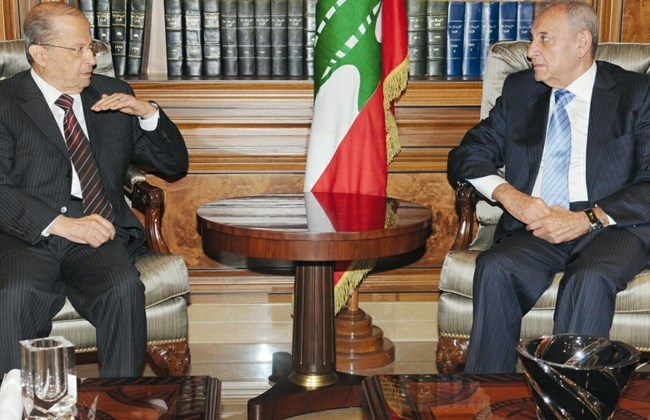Lebanon’s national dialogue highlights region’s complexities
Dalal Saoud/The Arab Weekly/August 07/16
BEIRUT – A fresh attempt to convince Lebanon’s political rivals to shelve their disputes and come up with solutions to the country’s multiple crises has failed, to no one’s surprise. National dialogue sessions, August 2nd-4th in Beirut and hosted by House Speaker Nabih Berri, became another reminder that the political parties, which are divided over almost every issue, are not ready to make concessions. Although they admitted the growing dangers threatening Lebanon’s stability, the dialogue members wrapped up their meetings with no tangible results. The prospect of the election of a new president in the near future is still far-fetched and disagreements over a new electoral law persist while — on perhaps a positive note — the issues of administrative decentralisation and the establishment of a senate were put on the table.
To some, the fact that the rivals, including senior members of pro- Saudi Sunni Future Movement led by former prime minister Saad Hariri and of Iran-backed Shia Hezbollah, headed by Sayyed Hassan Nasrallah, met around the national dialogue table was enough to defuse Sunni-Shia tensions and maintain the country’s fragile stability.
Though it is partly true, much more is needed to avoid the collapse of the country. “Lebanon is a microcosm that reflects what goes on in the region,” said Hilal Khashan, chairman of the political studies department at the American University of Beirut. “The Lebanese can talk among themselves, even though they realise it won’t be possible for them to agree on anything as long as the region is in a state of disarray.”True, the economy is weak and the machinery of the state is hardly functional, Khashan noted, “yet there is an international and regional understanding on preventing their collapse.”
Western and regional powers have made it clear to Lebanese leaders that they need to reach an internal understanding themselves.
“Presently, there is no power, whether regional or international, that can or is willing to impose a specific settlement on the Lebanese concerning the presidential elections or the new electoral law,” said Kassem Kassir, a political analyst well informed about Hezbollah and an expert on Islamic movements.
Kassir explained that Berri “felt the heat” of the growing tension and wars in the region and thus called on the Lebanese rivals to meet “to avoid reaching the point of no return”. With each party betting on developments in the region to boost its position and secure more gains internally, time is running short.
“We still have six to seven months but, if we don’t produce a new electoral law or elect a new president, we will be heading to a constitutional crisis that would lead to renewed demands for holding a new constituent conference (to change the current political system),” Kassir said.
Lebanon has been without a head of state since May 2014 because parliament has been unable to convene due to a lack of quorum to choose a successor to former president Michel Suleiman. Hezbollah parliamentarians and their Christian allies of the Free Patriotic Movement (FPM) have boycotted the votes in an attempt to force the election of their candidate, FPM leader Michel Aoun. In any case, a settlement would require concessions from both parties, which are delaying that moment, awaiting a breakthrough in the Syria war or the Saudi-Iran dialogue — each for its own advantage.
Nothing indicates that Tehran and Riyadh are any closer reaching agreement. On the contrary, they are increasing the pressures on each other. “It is the time for each one of them (Iran and Saudi Arabia) to improve its bargaining position. More escalation looms on the horizon and it will get worse before it can get better,” Khashan said. “Distrust of Iran runs deep in the Arab psyche. [Iran] needs to convince Arabs that it is abandoning its politics of mischief.”
Iran, he said, wants recognition as a “paramount regional power”, not only in the Gulf but also in Lebanon, Syria and Iraq. The Saudis totally distrust the Iranian leadership who turned down repeated efforts in the past to “usher in mutually beneficial relations” with Saudi Arabia and other Gulf states.
“Iran is bent on imperial expansionism and Saudi Arabia is determined to arrest its surge,” Khashan said. Kassir said the Saudis could soften their position if Iran facilitates an agreement to end the Yemen war that is satisfactory to them, helps achieve a settlement in Syria, makes concessions in Bahrain and most importantly assures them about its role in the region. “But Yemen is the key for any Saudi-Iranian dialogue,” he said. “However, the region needs a major settlement whereby the Saudis would feel they are a strong party and Iran, which is to respect that, will have its own niche.”
Until then, the Lebanese want their leaders to end the political deadlock before possibly being forced to act under the impact of a major security development — as many security and political sources fear.





















